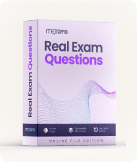HRCI SPHR - Senior Professional in Human Resources Exam
Page: 2 / 134
Total 670 questions
Question #6 (Topic: Volume A)
This nonmathematical forecasting technique brings the participants together to share and discuss their ideas about the forecast. The ideas are then ranked based
on the groups input. What technique is discussed?
on the groups input. What technique is discussed?
A. Management forecasts
B. Delphi technique
C. Nominal group technique
D. Brainstorming
Answer: C
Question #7 (Topic: Volume A)
Your organization offers an employees' retirement benefit program that is covered by the Employee Retirement Income Security Act of 1974. The administrative
responsibility for enforcement of the Employee Retirement Income Security Act of 1974 is divided among three government agencies. Which one of the following
is not a government agency that helps to enforce ERISA?
responsibility for enforcement of the Employee Retirement Income Security Act of 1974 is divided among three government agencies. Which one of the following
is not a government agency that helps to enforce ERISA?
A. IRS
B. Department of Labor
C. Pension Benefit Guaranty Corporation
D. FDIC
Answer: D
Question #8 (Topic: Volume A)
You are the HR Professional for your organization. You are discussing the status of your company's employees to determine who may be considered nonexempt
versus exempt. Which one of the following types of employees can never be considered exempted from overtime provisions?
versus exempt. Which one of the following types of employees can never be considered exempted from overtime provisions?
A. Manual workers
B. Sales people
C. Managers
D. Administrative assistants
Answer: A
Question #9 (Topic: Volume A)
Holly and Gary are HR Professionals in their organization and they are working to develop the strategic plan for their organization. Holly and Gary are using
SWOT analysis to help understand the needs of human, financial, technological, capital, and other aspects of their organization. What is SWOT?
SWOT analysis to help understand the needs of human, financial, technological, capital, and other aspects of their organization. What is SWOT?
A. SWOT is an analysis to define the strengths, weaknesses, openness, and timeliness of an organization.
B. SWOT is an analysis to define the schedule, weaknesses, opportunities, and timetable of a project endeavor.
C. SWOT is an analysis to define the seriousness, weaknesses, openness, and timetable of organization development.
D. SWOT is an analysis to define the strengths, weaknesses, opportunities, and threats an organization may face.
Answer: D
Question #10 (Topic: Volume A)
There are many different types of organizations that people create to accomplish business goals. Which business organization has just one person who is
responsible for all decisions in the business, retains all profits, and has unlimited personal liability for all business decisions?
responsible for all decisions in the business, retains all profits, and has unlimited personal liability for all business decisions?
A. Partnerships
B. Sole proprietorship
C. Limited liability company
D. Corporation
Answer: B
